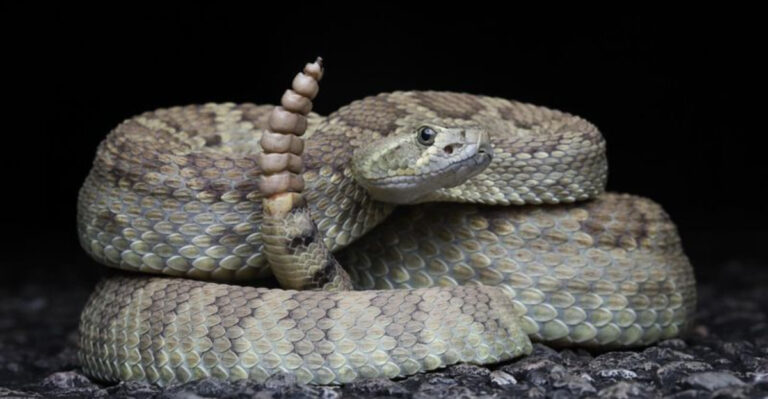Say Goodbye To The Scratch: 17 Ways To Help Your Itchy Cat
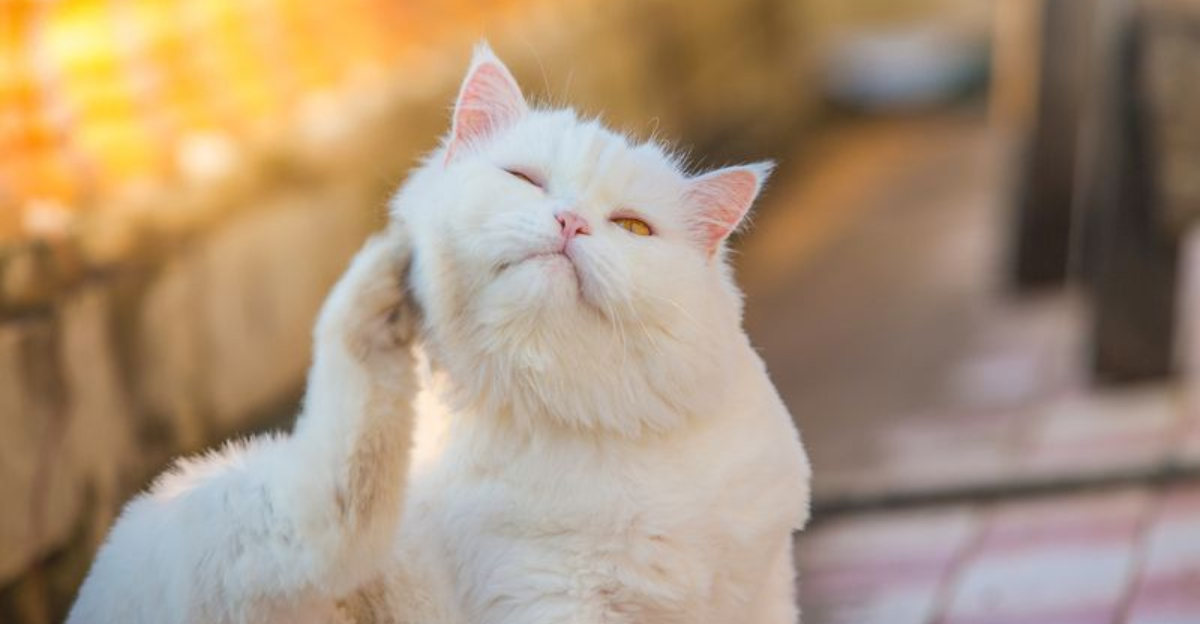
Itchy skin is a common complaint among cats and can stem from allergies, dryness, or pesky parasites. Watching your kitty scratch and squirm isn’t fun—but luckily, there are plenty of ways to help.
Check out these simple and effective tips to bring your feline some much-needed relief!
1. Chamomile Tea Rinse
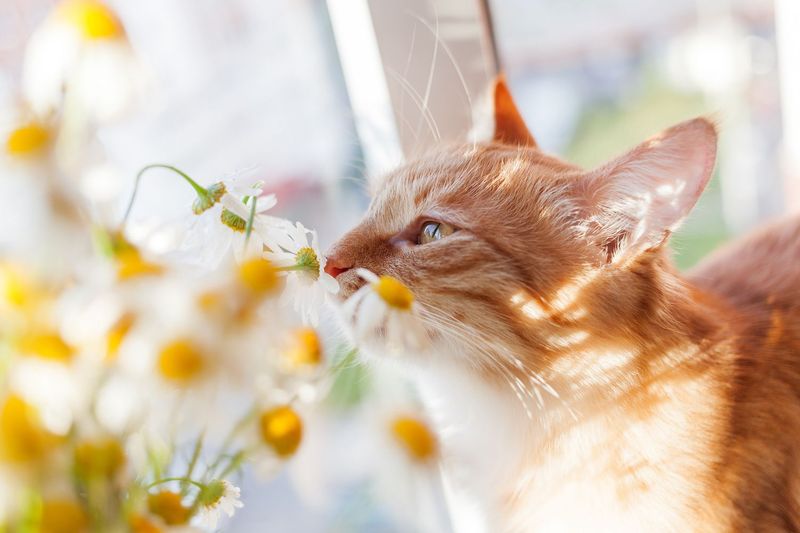
Chamomile is renowned for its calming properties, not just for humans but for animals too.
Prepare a mild chamomile tea by steeping a few bags in warm water. Once cooled, gently apply it to your cat’s affected areas using a soft cloth.
This natural remedy can help soothe irritated skin and reduce itchiness. Regular application can provide comfort and promote healing without the risk of side effects.
Ensure the tea is completely cooled before use to avoid any discomfort or burns.
2. Baking Soda Paste
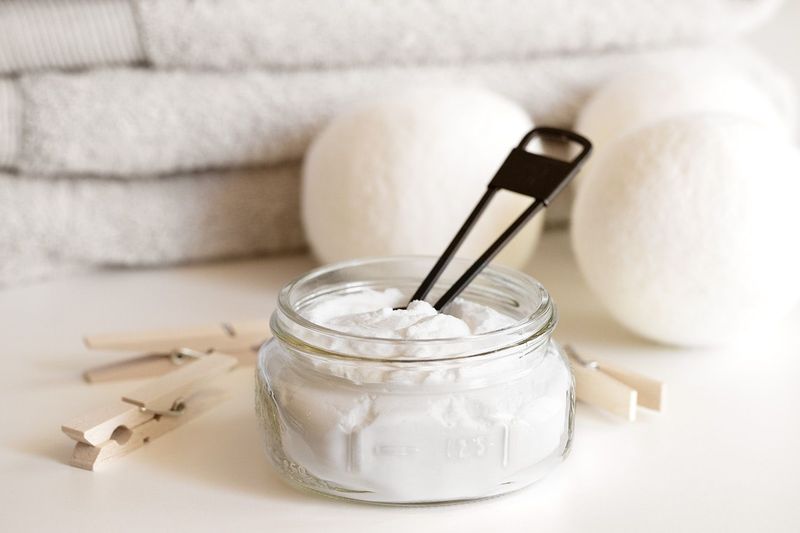
Baking soda to the rescue—it’s not just for your fridge anymore! This pantry staple can help calm your cat’s itchy, irritated skin with a quick DIY paste.
Just mix it with a little water until it’s thick and spreadable, then dab it on the scratchy spots.
Let it chill for a few minutes (cue soothing spa music), then rinse off gently with cool water.
It’s budget-friendly, easy to whip up, and can really take the edge off that itch.
3. Oatmeal Baths
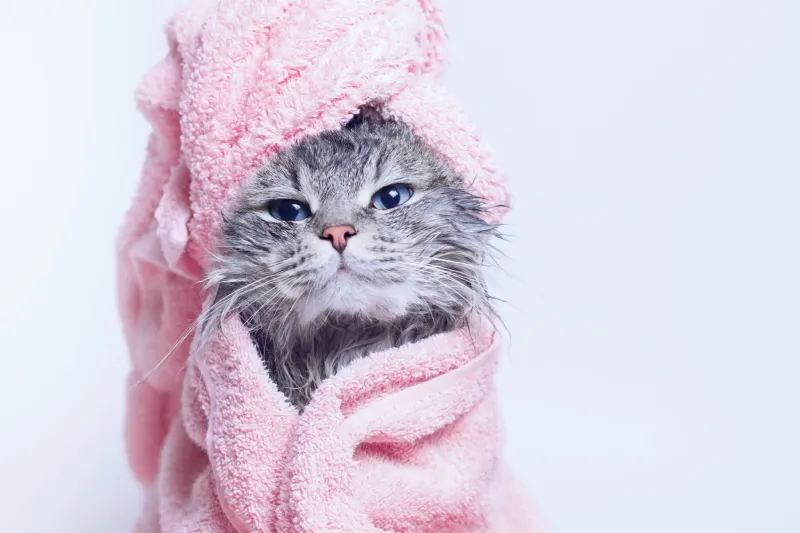
Oatmeal baths aren’t just for spa days—they’re a soothing treat for itchy kitties too! This natural remedy calms inflammation and gives dry skin some much-needed moisture.
Just grind up plain oats, mix with warm (not hot!) water, and you’ve got a gentle, skin-loving soak.
Ease your cat into the bath and gently pour the oatmeal goodness over their fur—instant relief in the making.
Afterward, wrap them up like a burrito and pat them dry with a soft towel—no rough rubs, please!
You can repeat this soothing spa treatment weekly or as needed, especially for dry skin or mild allergies.
4. Aloe Vera Gel
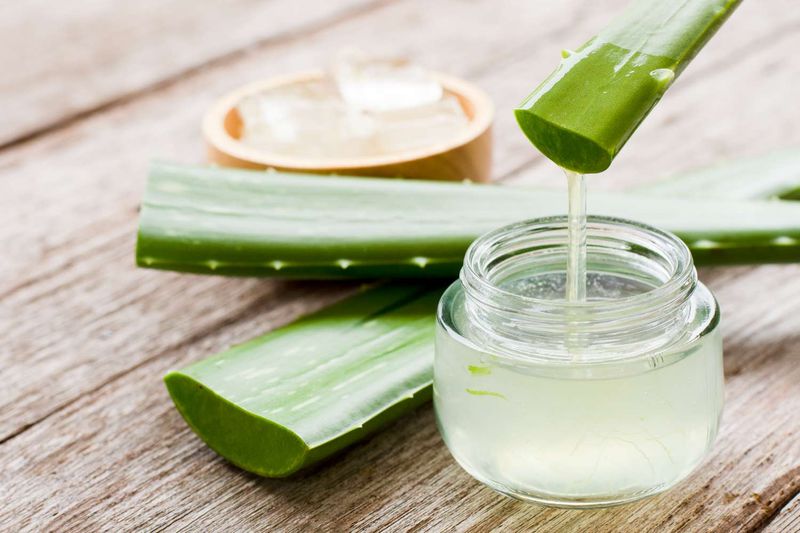
Aloe vera is like nature’s chill-out gel—perfect for soothing your cat’s itchy, irritated skin. Just make sure it’s pure aloe with no sneaky alcohol or fragrances hiding in there!
Start by testing a dab on a small area to make sure your kitty’s cool with it. Then gently massage a thin layer onto the itchy spots for that sweet, cooling relief.
It’s great for calming hot spots and giving dry skin a moisture boost.
You can use it after brushing or anytime your cat’s feeling extra scratchy.
As always, check with your vet if you’re unsure—but for many cats, aloe is the ultimate itch-fix!
5. Essential Oils
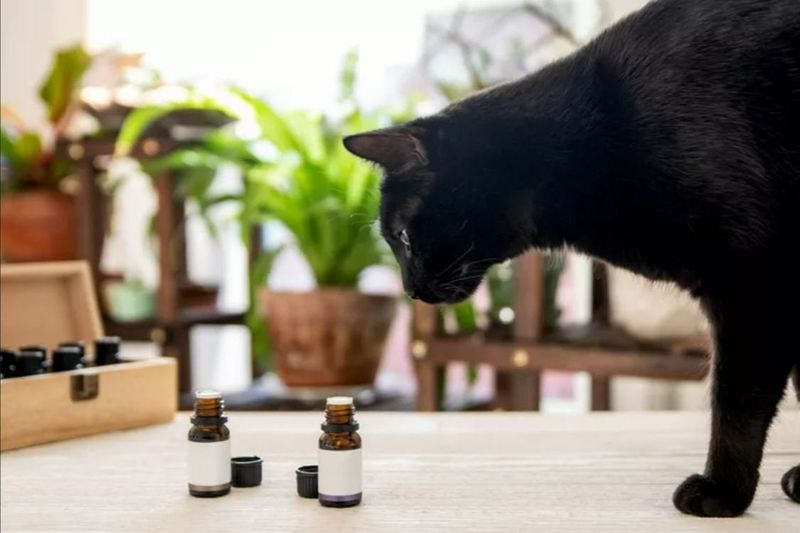
Essential oils *can* help soothe your cat’s itchy skin—but only if used with serious care! Skip direct application and never rub oils on their fur or skin (that’s a no-go).
Stick with super-diluted scents like lavender or chamomile in a diffuser, and always make sure the space is airy and easy for your cat to exit.
A whiff of calming scent might help with stress-related scratching—but if your cat looks annoyed, it’s time to switch it off.
Always check with your vet before introducing any new scents—some oils are safe for humans but risky for cats.
6. Hydrocortisone Cream

Hydrocortisone cream can be a skin-soothing superhero—but only with vet-approved supervision! Just a teeny dab on those itchy spots can calm redness and irritation fast.
Make sure your cat doesn’t lick it off—an Elizabethan collar or a distraction session can help.
This cream isn’t meant for long-term use, so think of it as a short-term fix, not a daily go-to.
Always check with your vet before you start—it’s important to make sure it’s the right move for your kitty.
7. Regular Brushing
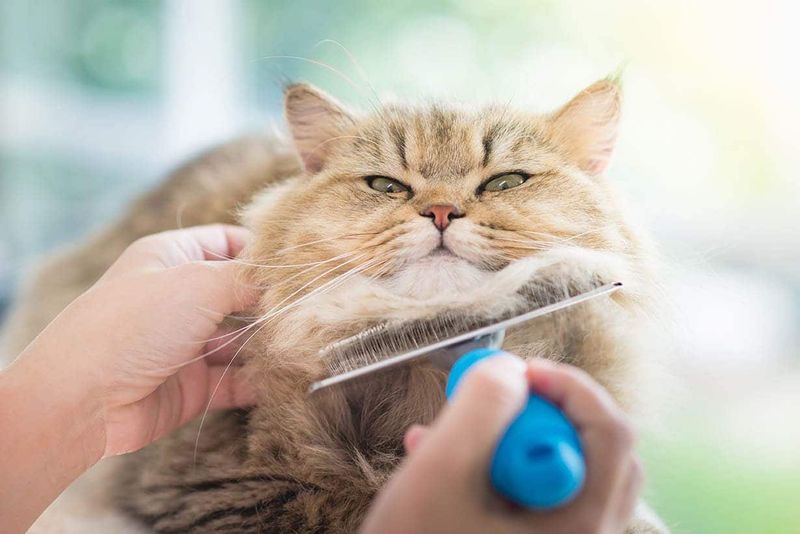
Brushing your cat isn’t just about keeping them pretty—it’s a secret weapon against itchy skin! Loose fur and tangles?
Gone. Soft brush + gentle strokes = happy, healthy kitty coat.
Start slow with short sessions so your cat doesn’t give you the stink eye. Once they’re into it, you can brush longer and enjoy the bonding time.
It’s also perfect for spreading those natural oils that keep their skin and fur silky smooth. Bonus: you get to check for fleas, ticks, or anything funky hiding in the fluff.
Pick a chill time—like post-dinner purrs—to make brushing a feel-good ritual. Your cat stays comfy, you stay sane, and the itch stays away!
8. Proper Diet
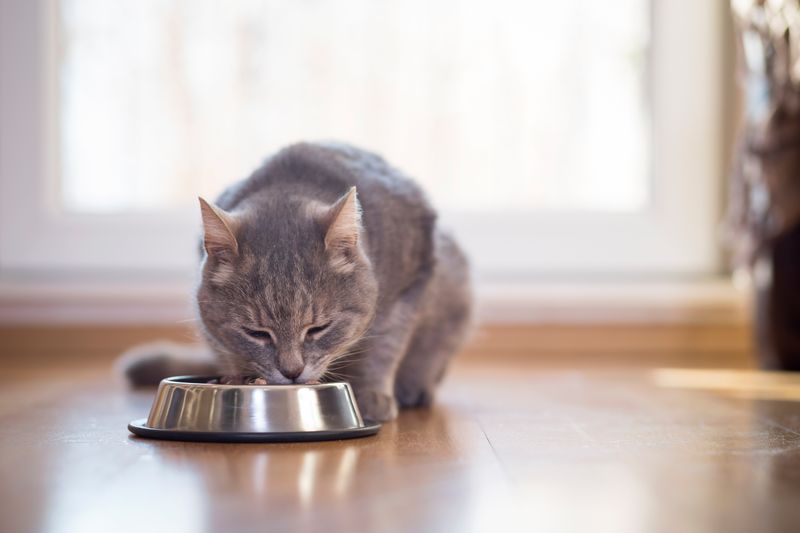
A happy kitty starts with a healthy bowl—yep, diet plays a big role in soothing itchy skin!
Foods packed with omega-3s, like fish or flaxseed oil, can work wonders from the inside out.
Chat with your vet to craft the purr-fect meal plan for your feline’s unique needs.
Look for high-quality, natural cat food loaded with skin-loving nutrients and no weird fillers.
If allergies are the culprit, an elimination diet might help sniff out the troublemaker.
9. Hydration
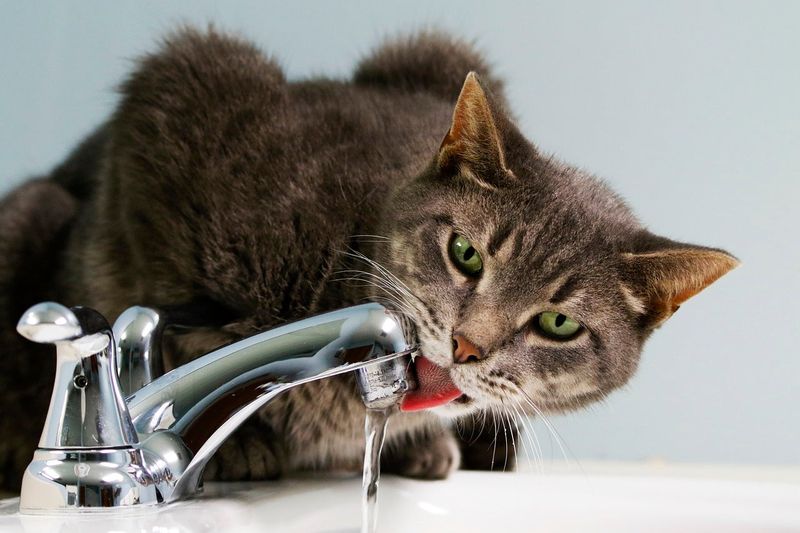
Hydration isn’t just for humans—your cat’s skin needs it too! Dry, itchy skin can often be traced back to not enough water, so keep those bowls full of fresh, clean H2O.
Try a pet water fountain to make drinking more fun—it’s like a kitty spa in the kitchen!
Wet food is another sneaky way to boost hydration and help keep that skin soft and flake-free.
Keep an eye on their water intake, especially in warm weather or if they’re on a dry kibble diet.
10. Flea Control
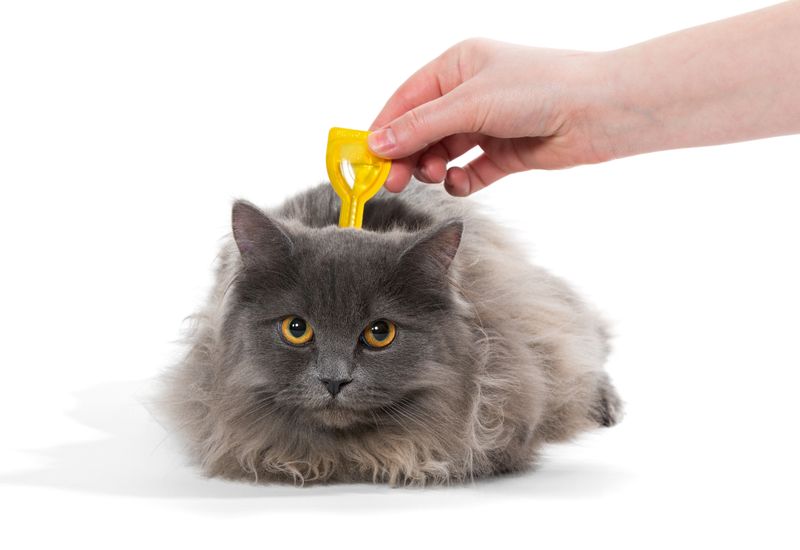
Fleas are the ultimate itch villains—and your cat deserves better! The first step? Grab a vet-approved flea treatment that works for your kitty, whether it’s a topical, pill, or collar.
But don’t stop there—fleas love to hang out in carpets and bedding too. Vacuum like a boss and wash their cozy spots regularly.
A little flea spray or powder can add an extra layer of protection at home.
Keeping your cat indoors helps too, since fleas throw fewer parties inside.
11. Humidifier Use
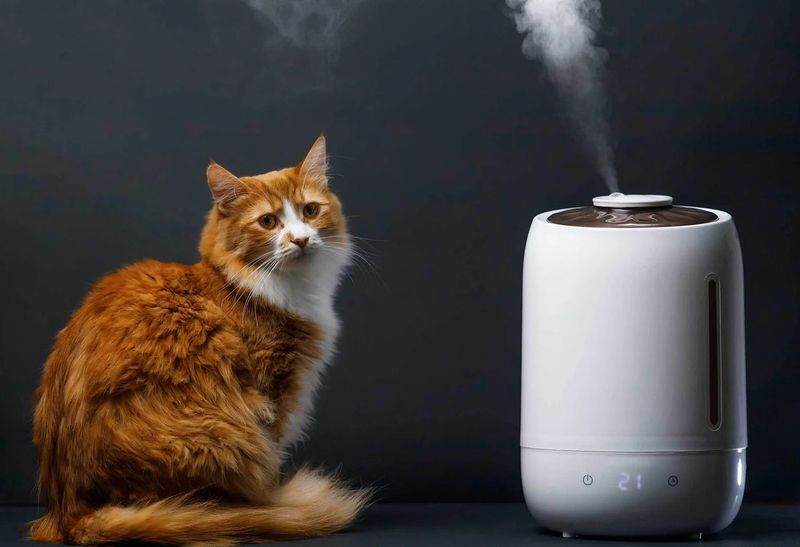
Dry winter air can turn your cat into an itchy, grumpy fluffball—but a humidifier can save the day!
Adding moisture to the air helps soothe dry skin and keeps those scratch attacks at bay.
Pop the humidifier in your cat’s favorite hangout spot for maximum chill-out benefits.
Just remember to clean it often—no one wants moldy mist floating around!
Bonus: everyone in the house breathes easier with better humidity levels.
12. Herbal Rinses
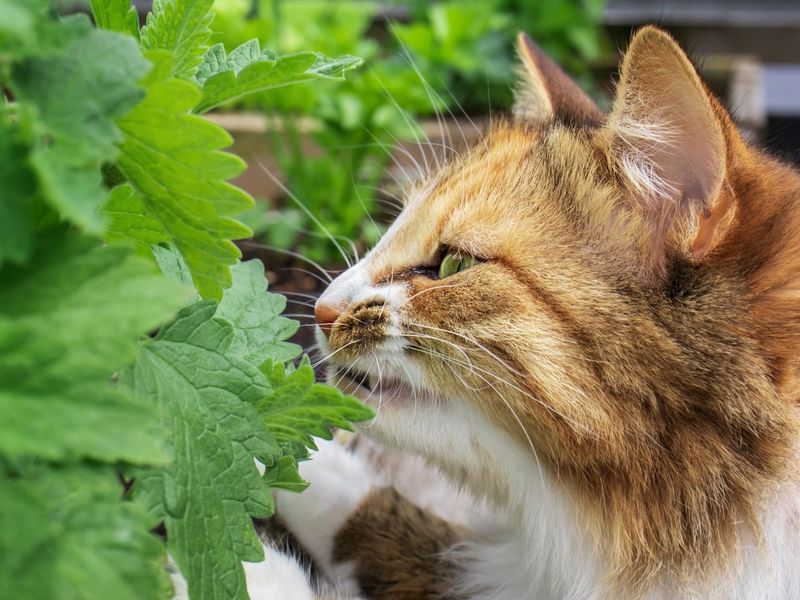
Chamomile and calendula aren’t just for tea—they’re soothing superheroes for your cat’s itchy skin!
Steep the herbs in hot water, let it cool to a comfy temp, and you’ve got yourself a natural, calming rinse.
After a bath, gently pour it over your kitty’s fur, making sure it reaches the skin underneath.
These herbal helpers can calm inflammation, ease irritation, and speed up healing—perfect for those pesky scratchy spots.
You can even pair it with an oatmeal bath for extra spa-day vibes.
13. Coconut Oil Massage
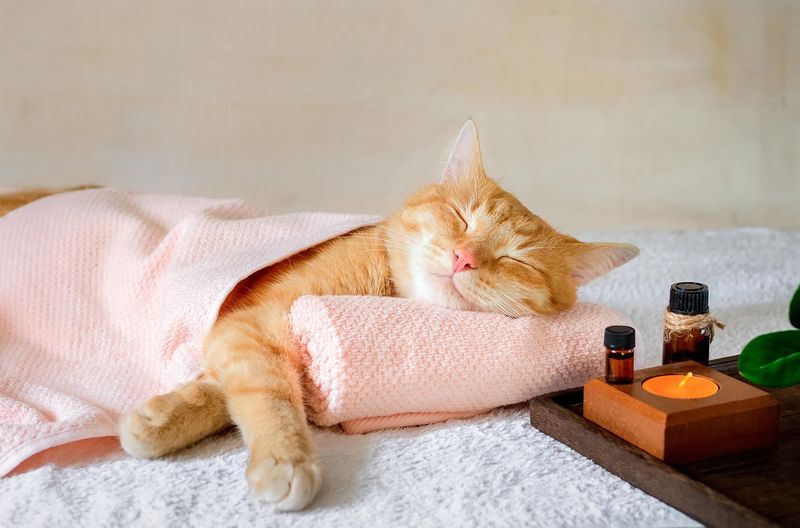
Coconut oil is like a tropical treat for your cat’s itchy skin—moisturizing, soothing, and oh-so-gentle!
Just rub a small dab of virgin coconut oil between your hands and massage it into those dry, scratchy spots.
It works wonders on flaky patches and creates a protective barrier to keep irritation out.
Bonus: it’s naturally antibacterial and antifungal, which means extra healing power in every drop.
Give your kitty a little time to soak it in—and maybe distract them with a toy so they don’t lick it all off.
14. Hypoallergenic Bedding

Upgrading to hypoallergenic bedding is like giving your cat a five-star, itch-free sleep zone! Traditional fabrics can harbor dust mites and other sneezy, scratchy triggers.
Look for bedding made to repel allergens, and keep it squeaky clean with hot washes and gentle, fragrance-free detergent.
Don’t forget to vacuum your cat’s favorite lounging spots—those dust bunnies aren’t helping!
A cozy, allergen-free nap spot means less itching and way more peaceful purring.
15. Regular Vet Visits
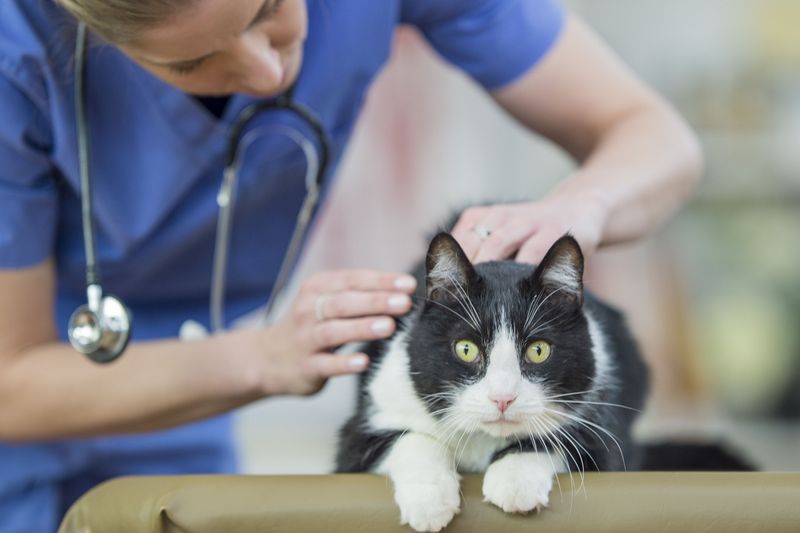
Regular vet visits? Totally a must for keeping your cat’s skin calm, comfy, and itch-free!
A vet can spot the sneaky culprits behind the scratching—like allergies, pests, or hidden health hiccups.
Bring notes on anything odd you’ve noticed, from flaky spots to new scratching sprees.
It’s also the perfect time for preventative care—think flea treatments, vaccines, and expert tips.
Catching problems early means fewer flare-ups and more happy kitty vibes.
16. Apple Cider Vinegar Spray

Apple cider vinegar isn’t just for salad dressing—it can help calm your kitty’s itchy skin too! Just mix it 50/50 with water in a spray bottle for a gentle, natural mist.
Spritz lightly on the itchy spots (steer clear of any open wounds) and let the soothing begin.
Its antibacterial and antifungal powers can help stop irritation in its tracks.
Always do a patch test first—some cats might be a little too sensitive to the tangy stuff.
17. Green Tea Soothing Bath

Green tea isn’t just refreshing for humans—it can also soothe your cat’s itchy skin. Brew a pot of green tea, let it cool, and use it as a rinse or a bath for your feline friend.
This method can help reduce inflammation and discomfort, providing a natural alternative to medicated baths. It’s both soothing and gentle.
Ensure the tea is at a comfortable temperature to prevent any stress or injury.

